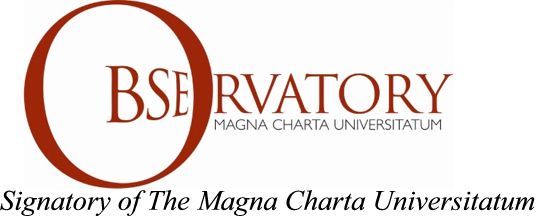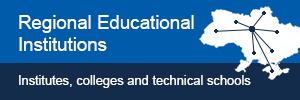Scientists from the NUBIP of Ukraine have participated in the Mobility Program for Scientists and Researchers of Bern University of Applied Sciences
Scientists from the National University of Life and Environmental Sciences of Ukraine have completed an internship at Bern University of Applied Sciences in Switzerland under the Mobility program for Scientists and Researchers from Ukraine. During January-February 2023, Professor Sergiy Zibtsev and Assoc. Prof. Oleksandr Soshenskyi studied the best practices in teaching and conducting research. They also got acquainted with the priority areas of research at Bern University of Applied Sciences at the Department of Agricultural, Forestry and Food Sciences (HAFL).
The visit was full of numerous meetings with scientists, foresters, excursions to research facilities, familiarization with the peculiarities of the educational process, etc. The program began with an introduction to the structure (faculties) of Bern University of Applied Sciences and a meeting with the Head of International Relations Office - Prof. Eigenmann Pesche.

During the Mobility Program, Ukrainian scientists continued working on the scientific projects they had started in Ukraine and developed new partnerships with scientists from Bern University of Applied Sciences, Department of Agriculture, Forestry and Food Sciences (HAFL).

As a part of the visit, several lectures were delivered to the students and faculty of the University on the peculiarities of Ukrainian forests, forestry, current and strategic directions of forestry development in Ukraine, forest fires, and current challenges related to the war and climate change.

Sergiy Zibtsev and Oleksandr Soshenskyi hold a joint meeting with the Director of the Department of Agricultural, Forestry and Food Sciences (HAFL) Prof. Ute Seeling. Several meetings were organized with the Head of Department of Forest Sciences at HAFL - Prof. Dr. Bernhard Pauli, Professor of Forest Policy and International Forest Management Dr. Claude Garcia, Research Associate Dr. Patrick Olivier Waeber and Research Associate Dr. Mariana Melnykovych, Prof. Dominique Guenat and others to discuss possible projects within further cooperation.

Researchers from Ukraine also took part in the educational process as students, in particular, they joined the course on international forestry, which was taught by Prof. Dr. Claude Garcia. This course is unique because it is based on using strategy games to model landscapes change, incorporating stakeholders behavior (e.g. as seen in Garcia et al., 2022, https://doi.org/10.1038/s41893-022-00881-0). During the course Dr. Garcia teaches the students on how to plan landscape management including preferences of different stakeholders. Students prepare different strategies and model the behavior of different stakeholders, learn how different landscape management strategies may affect biodiversity and whether they are in line with the international processes and agreements with forestry. Students also look for ways of solving mistakes in landscape management and learn a strategic, integrated approach to landscape governance.

Prof. Dr. Dominique Guenat, Head of HAFL Hugo P. Cecchini Institute, shared his practical experience of applying the Problem Based Learning (PBL) method in teaching.


By applying a problem-based learning approach, students at HAFL get familiar with a problem in the area of study (called as tasks or cases). Typically, problems consist of relatively neutral descriptions of phenomena or events that are related in some way and need to be explained. The phenomena can be physiological, biological, psychological, or social. Students work on problems in study groups of 3 to 5 students. The groups meet twice a week for two hours. Students try to find an explanation for the phenomena and their relationships described in the problem, based on their previous knowledge. While investigating the problem, students ask questions that they cannot yet explain. These questions and unsolved problems are used to create learning problems as starting points for students' independent learning. As a rule, two to three days are devoted to independent study. Students search the literature or follow other avenues to clarify the topics articulated in the learning questions. When the group reconvenes, students report on the results of their independent study activities. The reporting phase focuses on synthesizing the gained knowledge.
From the description stated above, it is clear that the problem is the driver of a learning process. Problems trigger learning. However, for real learning to take place, the active participation of students is necessary. Students themselves are another important part of the learning process in problem-based learning. The teacher facilitates small group work at various stages of the learning process, encourages students to deepen their knowledge, promotes active participation of all students in the group process, and motivates students. The teacher also plays a crucial role in problem-based learning. It is believed that the content offered in the context of a problem and the active participation of students are important advantages of problem-based learning over other formats of knowledge presentation, such as lectures.
When students analyze problems in a learning group, all prior knowledge relevant to the problem is activated. Using this knowledge as a starting point, students generate possible explanations, making it easier to process and retain new knowledge. This new knowledge is also better retained because group discussions encourage students to ask questions about the topic presented in the task.

The features of problem-based learning are:
- Improved problem-solving skills;
- Integration of knowledge from the basic sciences and behavioral skills is stimulated;
- Students learn how to learn;
- Students are encouraged to work independently;
- Students' motivation is increased;
- Integration of knowledge from different disciplines is encouraged.
- Problem-based learning is a student-centered educational approach because it makes students responsible for their own learning. This is in contrast to traditional curricula, where the teacher determines what students should learn, as well as how and in what order.
In order to study the practical experience of forestry in Switzerland, an excursion to the forests of the canton of Zurich, Stammheim was organized as a part of the Mobility program, where forester Christian Bottlang spoke about forestry, supply chains and wood processing in the Stammheim region. In particular, he demonstrated the pest infestation of artificial spruce forests, where continuous sanitary felling was carried out. The forester spoke about reforestation approaches and the current management strategy in the forests of the canton of Zurich. Currently, special attention is paid to indigenous species and natural regeneration, although artificial reforestation is also used where natural regeneration is insufficient. An important difference compared to Ukraine is forest ownership - in Switzerland around a third of the country's forests are privately owned, while in Ukraine this figure is less than 0,5%. This situation complicates forest management because the forestry organization needs to coordinate its activities with all owners, who usually have small plots of 1-5 hectares. In Switzerland, a selective felling system and close to nature forestry is applied, in which target trees that have reached the appropriate (commercial) size are cut down. Clear-cutting is only used in case of stand mortality.


Wood of the lowest quality - branches, dry, damaged trunks - is partially used for energy biomass production. A special wood chipper breaks the wood into chips and loads it into a truck. This biomass is then used to heat a town near the city (providing heat and hot water to 300 households).


Much of Stammheim's roundwood is processed at the Konrad Keller AG sawmill, which is the largest one in the canton of Zurich. Ukrainian participants of the Mobility Program, together with the master students in International Forestry from HAFL, visited the wood processing plant and got acquainted with the steps and features of roundwood processing.


During the Mobility program, the scientists from Ukraine met Dr. Christian Rosset, Professor of the Department of Silviculture and discussed current directions and strategic actions for forestry in the face of climate change. They discussed the peculiarities of teaching and testing students' knowledge. Ukrainian researchers got acquainted with the method of laying out trial plots - Marteloscope, and the system of collecting and visualizing data from trial plots using a special information system - Sylvotheque (https://martelage.sylvotheque.ch/). The Sylvotheque system is a new project of the Department of Forestry at Bern University of Applied Sciences HAFL, which is currently under development. The prospects of the Ukrainian scientific community joining the system were discussed. The Sylvotheque system is useful not only for scientists, but also for teaching, especially in the context of distance learning. With the help of panoramic visualizations, different types of forests in different parts of Europe can be demonstrated and analyzed with students.

Professor Christian Rosset also conducted a tour of the neighboring forest of HAFL, where he showed the research plots and had a discussion with Ukrainian scientists.

One of the important elements of the internship was the discussion and drafting of a memorandum of cooperation between the National University of Life and Environmental Sciences of Ukraine and the Bern University of Applied Sciences. The memorandum has been drafted and negotiations are currently underway to sign it. At the end of the program, the Ukrainian participants attended a joint event dedicated to supporting Ukraine in the times of war, organized by participants of various programs currently taking place in Switzerland.

Switzerland stands in solidarity with other European countries and supports Ukraine, Ukrainian scientists, students and citizens in the difficult times of Russia's war against Ukraine.
Bern University of Applied Sciences BFH initiated and launched the CAS study program "Rebuild Ukraine", which aims to teach Ukrainians currently residing in Switzerland modern approaches for rebuilding Ukraine according to the principles of sustainable development, circular economy and resource efficiency. As a part of the program, participants work on real projects to rebuild Ukraine and engage potential donors. More information about the CAS study program "Rebuild Ukraine" is available at https://www.bfh.ch/fr/formation-continue/cas/cas-rebuild-ukraine-ukr/.
Sergiy Zibtsev
Prof. of the Department of Silviculture
Oleksandr Soshenskyi
Assoc. Prof. of the Department of Silviculture









